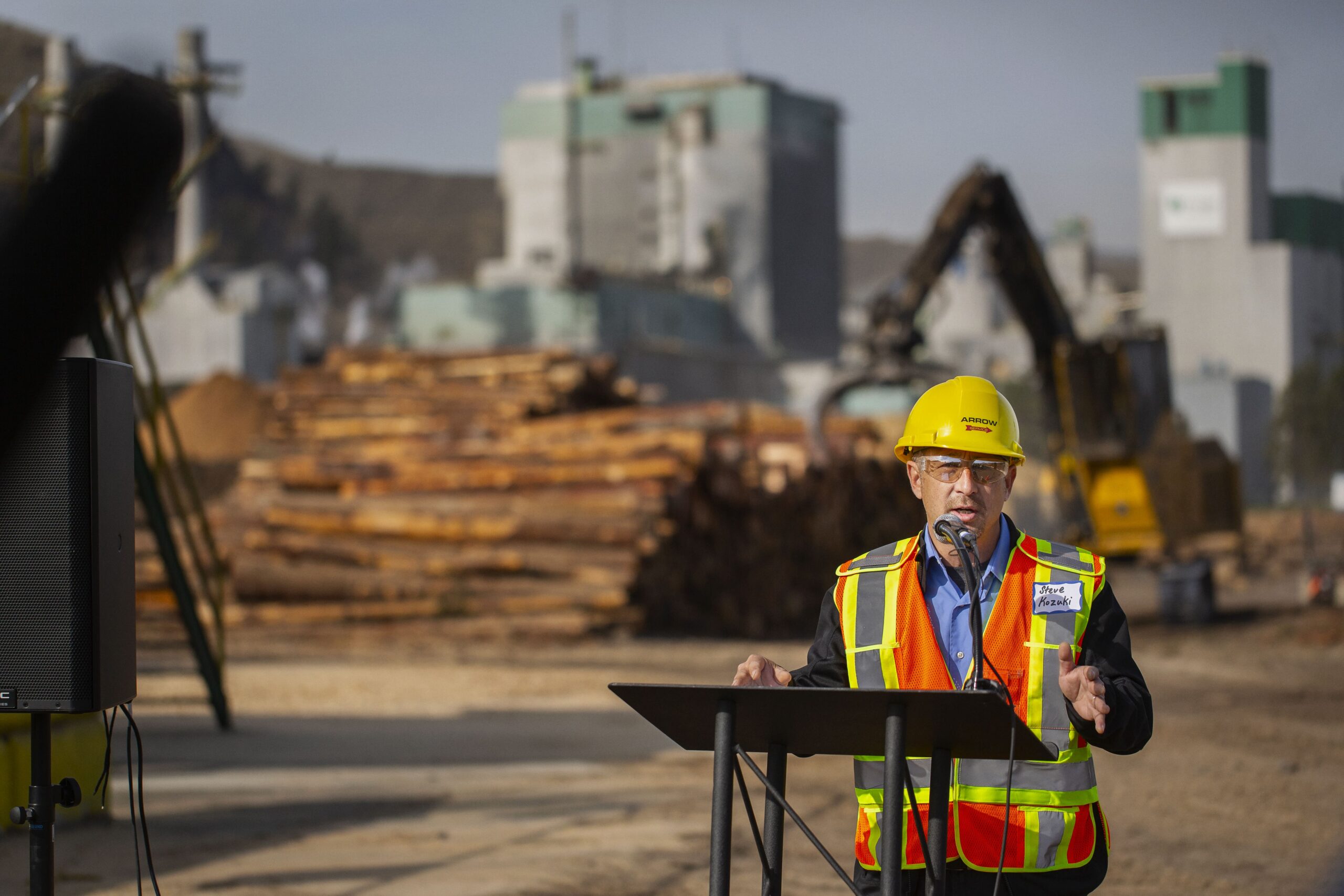Forestry Projects to Help Utilize Waste Wood or Mitigate Wildfire Risk
South Coast region, B.C. – At a press event in Kamloops, the executive director of the Forest Enhancement Society of BC (FESBC), Steve Kozuki, announced 42 newly funded forest enhancement projects. These projects throughout the province of B.C. will either assist with the delivery of uneconomic forest fibre to pulp and pellet mills or green energy facilities or will help communities reduce their wildfire risk. Among these projects, two projects are located in the South Coast region.

“The funding provided by the Forest Enhancement Society of BC is a testament to the Government of British Columbia’s drive to foster environmental sustainability and community wildfire risk reduction. Their support of these transformative projects demonstrates their commitment to helping communities reduce their risk of catastrophic wildfire events and transforming waste wood into green energy and sustainable products. They are taking action on climate change while at the same time promoting job growth and community resiliency throughout our province,” said Kozuki.
These newly funded projects come as a result of the $50 million given to FESBC earlier this year by the Ministry of Forests to boost fibre supply by utilizing uneconomic fibre and reduce wildfire risk while also supporting workers and communities.
“Our forests have endured some very difficult years of late. Devastating wildfires, pine beetle epidemics and the effects of climate change have stressed the environment more than ever before, with direct impacts felt by rural and First Nations communities,” said Bruce Ralston, Minister of Forests. “By using burned or damaged wood, projects around B.C. are providing the forest industry with fibre and are actively increasing our resilience to future wildfires.”

Photo credits: David Conly.
The two projects in the South Coast region are:
- Lil’wat Fibre Recovery 2023 2024: $38,903 in FESBC funding to transport pulp logs from the Mainland Coast and outside of the Fibre Recovery Zone to pulp mills on the South Coast.
- HSPP Incremental Haul Program on Vancouver Island: $635,000 in FESBC funding to transport low value pulp logs from harvesting outside of the Fibre Recovery Zone to the Howe Sound Pulp and Paper facility.
These initiatives will utilize waste wood to produce green energy and sustainable products, reducing our reliance on fossil fuels and plastics that have long dominated our everyday lives. Other projects currently funded by FESBC will reduce wildfire risks for communities.
“With challenges such as insect epidemics, devastating wildfires, and the need to conserve old growth and wildlife habitat, it is crucial to find innovative solutions,” said Kozuki. “The declining timber supply has amplified the importance of utilizing leftover forest fibre that would have otherwise gone to waste.”
Of the 42 new projects funded throughout the province, 24 projects have direct First Nations involvement, while eight have some First Nations involvement.
ADDITIONAL QUOTE:
Lil’wat Fibre Recovery 2023-2024 project
Klay Tindall, General Manager of Forest Operations for the Líl̓wat Forestry Ventures LP.: “We are truly excited about the funding we have received from the Forest Enhancement Society of BC (FESBC) for our Lil’wat Fibre Recovery 2023-2024 project. This funding marks a significant milestone in our efforts to promote and maintain sustainable forestry practices and contribute to the well-being of our local community and environment. The funding from FESBC will play a pivotal role in recovering pulp fibre from higher-elevation hemlock balsam stands and getting it to local pulp mills. This will not only create a reliable supply of raw materials for the mills but also contribute to the overall economic vitality of our region. By taking these actions, we aim to make the best use of available resources while maintaining a focus on sustainable forestry practices.
This funding enables us to turn our vision into action and make a tangible impact on our local environment, economy, and community. We recognize the importance of partnerships and collaboration in achieving our goals, and we look forward to sharing our progress and success with FESBC and the broader community.”
FESBC would like to gratefully acknowledge the financial support of the Province of British Columbia through the Ministry of Forests.
